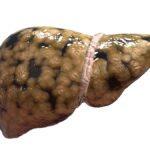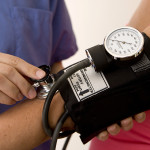By David Blyweiss, M.D., Advanced Natural Wellness
August 2, 2019
If you shudder at the thought of getting your next colonoscopy, you’re not alone.
I have several patients who dread the expected explosive results of the liquid laxative drink and worry about being injured during the procedure.
That’s why you’ll be happy to learn there are a few safer alternatives for testing your colon health. But none of them are 100% accurate, so it pays to know the details.
First off, I recommend anyone between the ages of 50 and 75 get a colonoscopy every 10 years. The gold standard for the early detection of colon cancer is a colonoscopy.
This type of cancer is very slow growing. So the earlier it’s detected, the more treatable it is. As a result, colonoscopies make a great deal of sense.
But I understand why people hate them. They’re invasive and unpleasant… even scary.
In fact, colonoscopies with polyp removal result in serious complications about 0.5% of the time. So the odds of being injured by the side effects of colonoscopy may actually be more than your odds of getting colorectal cancer in the first place!
Open your arteries, improve blood flow for a new health miracle...
Did you know your circulatory system has over 60,000 miles of arteries, veins and other blood vessels, if stretched end to end?
But as you age, your blood vessels undergo changes, which may cause them to stiffen, thicken and get clogged.
GOOD NEWS! Doctors have now identified a “Miracle Molecule” inside your arteries that helps OPEN your arteries and IMPROVE blood flow.
It’s what Dr. Valentin Fuster calls it, "One of the most important discoveries in the history of cardiovascular medicine."To you, that means...
- Healthy blood pressure
- Sharper mind and memory
- Skyrocketing energy and muscular strength
- Increased pleasure and passion in the bedroom
- Improved circulation to every cell and organ in your body
Go here to discover a new natural way to significantly boost the levels of this miracle molecule in YOUR body NOW!
In recent years, fecal blood tests have become very common when it comes to screening for colon cancer. There are two types of these tests.
One is the fecal immunochemical test (FIT). The other is a fecal occult blood test (FOBT).
Of the two tests, the FIT is much more sensitive when it comes to detection of early-stage cancers and relevant tumors. But FOBT isn’t far behind.
Both of these tests are able to find small amounts of blood in the stool that you can’t see with the naked eye. If blood is detected, it could be an early sign of cancer or a polyp. In this case, you would still need to follow-up with a colonoscopy.
At Home DNA Test has High Detection Rates
While fecal blood tests have their uses, today’s advancements in DNA have led to an even better and more accurate way to test for colon cancer.
This makes the latest technology on colon cancer screening, called Cologuard®, a very powerful tool.
It’s a simple test of your stool that not only detects tiny amounts of blood. It also looks for certain DNA biomarkers and genes found in colon cancer.
You see, your colon naturally sheds cells. These end up in your stool. And Cologuard® can tell whether they are abnormal or not. Abnormal genetic material in the cells could indicate cancer or pre-cancer.
Cologuard® testing catches over 92% of the cancers detected by colonoscopy. FIT, on the other hand, only catches about 73%.
The World's Quickest Solution for Ending Prostate and Urinary Misery
This has recently been revealed to be one of the only real breakthroughs in prostate health.
The seeds of a strange fruit (sometimes called "Chinese Apples") hold powerful phytonutrients that are a revolution in prostate health.
In fact, UCLA and Veterans Administration research have now proved this to be true.
Not only that, but it may be the worlds quickest solution for ending prostate misery.
Simply stated, these phytonutrients represent a huge step beyond beta sitosterol, saw palmetto, and other phytosterols alone.
Simply click HERE if you want to have fast prostate relief...restful, uninterrupted sleep...no more constant "urges to go"...enhanced virility...and optimal prostate support for life.
Once again, however, if the results are positive, you’ll still need to undergo a colonoscopy. But if they’re negative, you might be off the hook.
You don’t need to go through a colon cleanse or liquid diet for these tests. Samples can be collected at home. And there’s no risk of damage to your colon.
All of these are reasonable alternatives if you avoid screening because you don’t want to go through the unpleasantness of a colonoscopy.
However, I do have a few warnings to add.
Which Type of Colon Cancer Screening is Best for You?
Before you decide which type of test is best for you, here are three things you should know about fecal tests.
First, they can throw off false positives. This is especially true when it comes to Cologuard® testing. A false positive means that you may experience unnecessary stress and anxiety while waiting for a colonoscopy that shows no problems at all.
I just had a patient call me the other day because of her positive Cologuard® results. She was in a panic because her gastroenterologist’s office called her at 8:00 am to tell her to come in to discuss the results. It ruined her day.
Second, none of these tests have extremely high rates of success in detecting pre-cancerous lesions. Cologuard® catches less than half as many as a colonoscopy does. FIT detects less than a quarter.
Third, these tests are not able to detect polyps which may – at some point in the future – become cancerous. This is important! When you have a colonoscopy, any polyps that are found get removed then and there.
So, if you have serious concerns about a colonoscopy, these tests are better than no screening at all. However, you can’t go with them all of the time. It’s still a good idea to get a colonoscopy on occasion.
I do have some tricks to help…
First, you can ask for a pediatric scope instead of a regular scope. It’s thinner so it should be a bit more comfortable.
Then, certain lifestyle changes can also cut down on your risk of colon cancer. As they say, “an ounce of prevention is worth a pound of cure.”
Eating less meat – especially barbecued or processed meat – can cut down on your chances of colon cancer. Eating lots of plant-based foods will help your gut produce something called N-Butyrate, which helps keep the lining of your colon healthy.
It’s also important to have regular bowel movements so toxins don’t sit for a long time within your intestines. Stay hydrated and try taking some magnesium with vitamin C if you are having slow bowels.
Taking all of this into consideration, there’s absolutely no excuse to avoid colon cancer screening anymore. Considering this is the third most common type of cancer in the U.S., any one these tests could help save your life.
SOURCES:
Update on Colorectal Cancer; Am Fam Physician. 2000 Mar 15;61(6):1621-2, 1628
Ann Intern Med. 2006 Dec 19;145(12):880-6;
Binefa G, et al. Colorectal cancer: from prevention to personalized medicine. World J Gastroenterol. 2014 Jun 14;20(22):6786-808.
Oort FA, et al. Colonoscopy-controlled intra-individual comparisons to screen relevant neoplasia: faecal immunochemical test vs. guaiac-based faecal occult blood test. Aliment Pharmacol Ther. 2010 Feb 1;31(3):432-9.
Imperiale TF, et al. Multitarget stool DNA testing for colorectal-cancer screening. N Engl J Med. 2014 Apr 3;370(14):1287-97.







